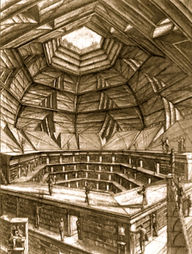

to the
Imaginarium Library of the Tower of Song
The Memorial-Musekal Library
& Imaginal Museum

Let
Our Dark Lady of the Tower Of Song
show you around.
As one Poetic Champion of the Tower Of Song has told us, She . . .


Showed me pictures in the gallery
Showed me novels on the shelf
Put my hands across the table
Gave me knowledge of myself.
Showed me visions, showed me nightmares
Gave me dreams that never end
Showed me light out of the tunnel
When there was darkness all around instead...
Showed me different shapes and colours
Showed me many different roads
Gave me very clear instructions
When I was in the dark night of the soul...
Showed me ways and means and motions
Showed me what it's like to be
Gave me days of deep devotions
Showed me things I cannot see...
(Van Morrison, "Torn Down a la Rimbaud")
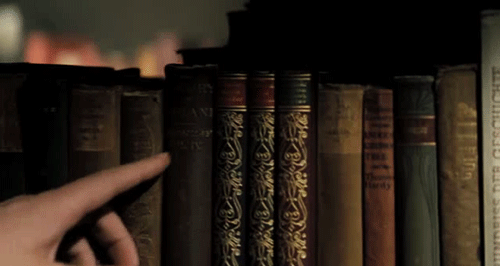

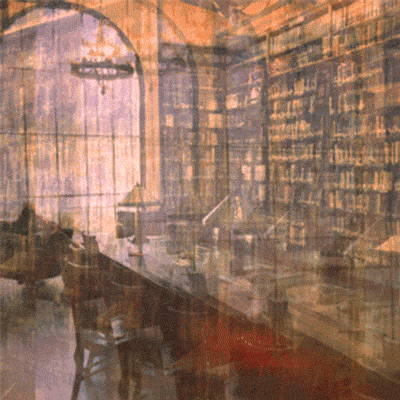
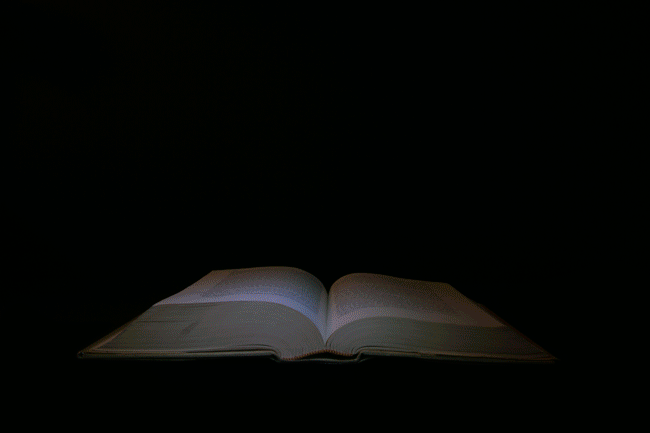
.
"Within my darkness I slowly explore
The hollow half light with hesitant cane,
I who always imagined Paradise
To be a sort of library." –Jorge Luis Borges
"Our minds are doorways into an infinite labyrinth. A kind of Borgesian library of infinite possibilities and we can choose to open these doorways in whatever sequence or fashion we wish." –Terence McKenna
.

Our Dark Lady of the Tower of Song Library
takes you on a guided tour of the Musekal-Memorial Library's interior chambers, which show pictures of the great libraries of old (when they were sacred temples, such as the Egyptian "House of Books," presided over by goddesses and gods), both real and imagined.
{This page is dedicated to all lovers of libraries; lovers of learning.}
Mnemosyne, Muse of Memory
& Mother of the Muses

Seshat, Egyptian goddess of wisdom, knowledge, writing, and goddess of libraries.
To see why it's called the "Musekal-Memorial Library" and for information on (a) the ancient origins of our libraries in "sacred libraries" (and thus the archetypal model for the Tower of Song library), (b) on the Library of Alexandria and the Tour Magdala Library, (c) gods and angels of libraries, and (d) on erotic love and libraries,
“Librarians are tour-guides for all of knowledge.” –Patrick Ness
“Nothing is pleasanter than exploring a library.” –Walter Savage Landor
“Librarians are the secret masters of the world. They control information.” —Spider Robinson
Library of Alexandria, the "Wonder of the World"
and Great Library from Across the Ages



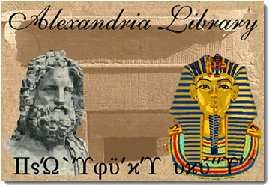
.jpg)
Hypatia, Library of Alexandria Librarian
.
Tour Magdala Library of Rennes le Chateau in Southern France

.


.
.
Imaginal Libraries
in the tradition of the "Mysterious Library"
.
“Let me explain. This is a library, a place of refuge. Libraries should be full of dusty old books–and nooks and corners and places to hide away in.” –Edward Ferrars (in Jane Austen's Sense and Sensibility)
“In a library we are surrounded by many hundreds of dear friends imprisoned by an enchanter in paper and leathern boxes.” –Ralph Waldo Emerson
“The books we read should be chosen with great care, that they may be, as an Egyptian king wrote over his library, 'The medicines of the soul’.” —Paxton Hood
.


For Romantic poet, writer, and scientist, Johann Wolfgang von Goethe, the biggest values in life were neither the state finances nor his immense private property, but the books of his personal library. Romantic poet Heinrich Heine regarded the world of books as the most powerful universe mankind ever created. And for Jorge Luis Borges the library simply was his paradise.

"That perfect Tranquillity of Life, which is nowhere to be found but in retreat, a faithful Friend and a good Library." —Aphra Behn

"My library
Was dukedom large enough."
—Prospero, The Tempest by Shakespeare


.
.
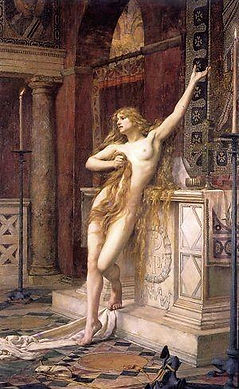.jpg)
"Hypatia" (Mitchell, 1885)


.
Of Love & Libraries
in the Tower of Song "Musekal-Memorial Library"
“The liberation of the Imagination is always an erotic event”—James Hillman
Thinking about the beautiful and learned Hypatia (in the painting above), the librarian of the “Universal Library” of Alexandria, the Gypsy Scholar—as one who found more than just books in a library—ventures to make a connection between erotic love (eros) and libraries. Therefore, the Gypsy Scholar would re-vision the “Memorial-Musekal Library” as both a temple of learning and love, with “Our Dark Lady of the Tower of Song” as erotic librarian, guiding lovers to the secret places between the stacks. That's why everybody knows that “Our Dark Lady of the Tower of Song”—fusing the heights of intellectuality with the depths of sexuality—gives good read!
The Gypsy Scholar believes there's such a thing as the “Romance of Scholarship,” which is essentially the romance of ideas that fulfills both requirements of the psyche —logos plus eros; the head’s demand for understanding and clarity and the heart’s desire for meaning and ecstasy: “a simultaneous knowing and loving by means of imagining.” (James Hillman) Thus, in the Tower of Song “Memorial-Musekal Library,” the scholar eroticizes his creative process and falls in love with “Lady Wisdom.” (The GS's Dantean-like fantasy [“Lady Philosophy”] has been given academic legitimacy. See book Falling in Love with Wisdom: American Philosophers Talk About Their Calling. So much for “dry scholarship” and “pedagogical solitude”!)
The following essay on love and libraries—public libraries—came along after the fact to magnificently capture all the Gypsy Scholar has imagined about romance in the Tower of Song “Memorial-Musekal Library.”
“I wonder how many people have fallen in love in a library. The place is a hotbed of romance. The sight of someone pouring over a book, devoted. The beatific inclination of the head. In no other pose does the human body look at once so strong and vulnerable, tense and at ease. Something beautifying happens to a person in the process of reading a book. There's the soft library light and the quiet helps too, but mainly it has to do with the act itself; the words, the ideas, transferring from one mind to another, and the recipient mind glowing like a smitten teenager. The library is a love nest, hot. You'd think they'ed shut the thing down.... Anybody, anywhere, can grace his mind—that is the deep and real romance of a library. Every book, on every shelf, in every stack holds the promise of more....
Picture him, picture her, poised over that book, the book that broke into their hearts and gave them life. Think of yourself at the moment of liberty, when the feelings of the book became your feelings, its thoughts your thoughts; its information yours—all in the marriage of true minds. There you were never lovelier.”
—Roger Rosenblatt


.jpg)

Because of the secret relationship of logos and eros (ideas and love, of intellectuality and sexuality, of knowing and loving), because reading in libraries is (if you know how to do it) sexy (a turn on), because a library is "a hotbed of romance," and because "Our Dark Lady of the Musekal-Memorial Library" is both the original librarian of the esoteric Magdalene Tower Library (Tour Magdala Library of Rennes le Chateau) and the legendary "Sacred Prostitute" of the ancient Dianic love cult, everybody knows that she gives good read.

For information on Mary Magdalene as "Sacred Prostitute" of a Dianic love cult and founder of the Grail legend in Southern France, see "Our Dark Lady" subpage.
.
.
The Angelic Presences of the
Tower of Song Memorial-Musekal Library

"You see, you hear these funny voices in the Tower of Song."
.





%201.jpg)
%202.jpg)


"Angel of the Book" and Angelic Host in the
Musekal-Memorial Library Inner Sanctum
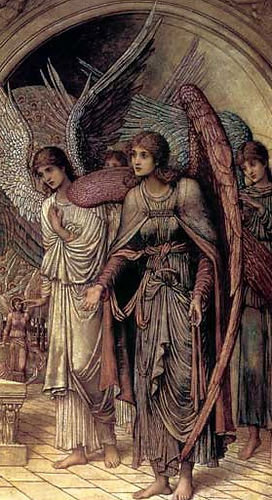%203.jpg)


Angels & Libraries
"The Library Angel"

It wouldn't be too much to say that angels love libraries. This can be seen in what is related about them in the mythology and legend of the Judeo-Christian tradition. For instance, it is told that there was a “Pre-Adamite” or “Antediluvean Library” written by Jehovah in several volumes, which composed Adam's entire library until the Fall. After the fall, it is reported that Jehovah wrote a revised edition in one volume on stone and placed it in a “house” on a mountain east of the Garden of Eden, where lived the Cherubim.
This was thus the very first “House of Books” and, accordingly, the angels became the first librarians, or “keepers of the stone books.” This is probably why angels were often associated with libraries—and still are to this day. Filmmaker Wim Wenders certainly has picked up on this notion. Nowhere in the arts will you find a better example of angels hanging out in libraries—haunting libraries—than his poetic masterpiece of a film, Wings of Desire (1987). It's a story of love and libraries , of the Poet as the storyteller of humankind, and of impossible love; that between guardian angel who wants to become human and eventually gives up his wings for the love of a flesh-and-blood woman—he really falls for her in a big way! (And impossible love is the kind of love/amor that's the Gypsy Scholar's favorite subject of library research). The the two main guardian angels wear black overcoats and sport pony-tails, and when the two of them wander into the Berlin library they find a whole host of their fellow guardian angels attending the reading patrons, aiding them in their research. They go into a kind of quiet rapture as they hear a symphony of thoughts and inner desires; it's as if they get off on all that mental energy in the library. But out of all the library patrons, it is the old poet bent over a large book who moves one of the angels most.Wings of Desire is an absolutely mesmerizing film, at least it was for the GS—it was as if Wenders had tapped into his own secret fantasy life about angels and libraries and put it on the big screen! [For this subject of “Impossible Love,” see the subpage of the same name.]
Homer, the aged poet : [inner voice] Tell me, muse, of the storyteller who has been thrust to the edge of the world, both an infant and an ancient, and through him reveal everyman. With time, those who listened to me became my readers. They no longer sit in a circle, bur rather sit apart. And one doesn't know anything about the other. I'm an old man with a broken voice, but the tale still rises from the depths, and the mouth, slightly opened, repeats it as clearly, as powerfully. A liturgy for which no one needs to be initiated to the meaning of words and sentences.... Tell me, muse, of the men, women, and children who will look for me—me, their storyteller, their bard, their choirmaster—because they need me more than anything in the world....The world seems to be sinking into dusk, but I tell my tales, as in the beginning, in my sing-song voice, which sustains me.
Yes, “tell me muse”! The Poet, the Bard, reminds the Gypsy Scholar that he became his “reader” when he discovered and entered into the Tower of Song “Musekal-Memorial Library”—haunted by “twenty-seven angels from the great Beyond”—and first heard the “sing-song voice” of the Storyteller's eternal “liturgy” in its inner sanctum.
The Library Angel
The celebrated novelist and science writer, Arthur Koestler, in his book The Roots of Coincidence, went so far as to claim his own “library angel.” This was his term for all those otherwise inexplicable moments—synchronistic events—in a researcher’s life when a book or book passage appears, as if out of nowhere, to provide the next insight on your subject. This literary synchronicity has also been recorded by other writers, who tell how a book suddenly catches their eye or even seems to fly out at you from the library shelf; how opening a book at random reveals a significant passage; how necessary articles, quotes, interviews, and poems appear as if by magic. Anyone who has experienced the workings of the “library angel” knows how surreal these literary synchronicities can be.

.






Harahel, Archangel of the Musekal-Memorial Library
Angel of the Book in the Musekal-Memorial Library
.
.
The Archetype of the Book
and theTower of Song Memorial-Musekal Library
.


The Angel of the Book presides over the books in the Tower of Song Musekal-Memorial Library.
The “Book” itself is an archetype. The “Book” (and its storehouse, the Library or “house of wisdom”) has been, since time immemorial, understood as “sacred” and even, in some mythologies, portrayed as a metaphor/symbol for the “Creation” in the Mind of God. Also, all creation is looked upon as a “vast library,” and thus the stars in the heavens were seen, astrologically, as a book in which can be read the secret destiny of heaven and earth. There is also the ancient notion of the Creation as “The Book of Life,” in possession of librarian angels.
The following section is dedicated to the archetypal Book and so also to the “Reader! lover of books! lover of heaven. And of that God from whom all books are given.” (William Blake)

.jpg)
“And Now Begins a New life, because another covering of Earth is shaken off. I am more famed in Heaven for my works than I could well conceive. In my Brain are studies & Chambers fill'd with books & pictures of old, which I wrote & painted in ages of Eternity before my mortal life; & these works are the delight & Study of Archangels.”
—William Blake, Letter 9/21/1800
“Librarians are tour-guides for all of knowledge.” –Patrick Ness
Because there's a long religious tradition that associates libraries, books (apocryphal, or "secret books"), and angels—"The Angel of the Book"—, and because these are archetypal in nature, in this wing of the Tower of Song library "Our Dark Lady of the Musekal-Memorial Library" takes you on a guided tour and shows you a gallery of different book artifacts (flying books and magic books) for your edification.
.










.jpg)





.
.jpg)

.
"A book is not an isolated being; it is a relationship, an axis of innumerable relationships." –Jorge Luis Borges
Continuing the guided tour, "Our Dark Lady of the Musekal-Memorial Library" next shows you the library's picture gallery dedicated to "The Joys of Reading," with images of women in the act of reading.
.
.jpg)

.jpg)

.
“The contents of a library can take you further than your own imagination could begin to imagine. To open a book is to open your mind.” –Amberle Cianne
.
.
Imaginal Libraries:
The Tower of Song “Musekal-Memorial Library” & the “Library of Babel”
as Universal Labyrinthine Libraries
.
“Scholars have long dreamed of a universal library containing everything that has ever been written.”
—Peter Singer
“Libraries are sacred time machines where knowledge flows and magic is eternal.” —Mari Barnes
.

The Library of Babel
.
The Library of Babel & The Musekal-Memorial Library
The Tower of Song “Musekal-Memorial Library” is inspired by the first great concept of an imaginal labyrinthine library; that of the “Library of Babel.”
“The library will endure; it is the universe. As for us, everything has not been written; we are not turning into phantoms. We walk the corridors, searching the shelves and rearranging them, looking for lines of meaning amid leagues of cacophony and incoherence, reading the history of the past and our future, collecting our thoughts and collecting the thoughts of others, and every so often glimpsing mirrors, in which we may recognize creatures of the information.”
― Jorge Luis Borges, The Library of Babel
The notion of an imaginal library of the labyrinthine type is the brainchild of “magical realist” writer Jorge Luis Borges (1899 – 1986). He was an Argentine short-story writer, essayist, poet and translator—and librarian (His genre is described variously as philosophical literature, fantasy, metafiction, and surrealism.) One of his best-known books, Labyrinths (1962 - 1983) is an award-winning collection of short stories and essays. It includes the story called “The Library of Babel,” in which is conceived a universe in the form of a vast library containing all possible books of a certain format and character set. Many of Borges’ signature motifs are featured in the story, including infinity, reality, cabalistic reasoning, and, most important of all, labyrinths. There are numerous philosophical implications within the idea of the finite library which exhausts all possibilities. (The concept of the library is also overtly analogous to the view of the universe as a sphere having its center everywhere and its circumference nowhere.)
The narrator of this surrealistic fairy tale describes how his labyrinthine universe consists of an enormous expanse of adjacent hexagonal rooms, each of which contains the bare necessities for human survival—and four walls of bookshelves. The Library is arranged non-hierarchically; all of the volumes—from the most rudimentary to the most inscrutable—are equally important in this infinite space. Its rooms are hexagons. (He describes a vast architecture of interconnecting hexagons each with four walls of bookshelves and passageways leading to other identical hexagons; an indefinite and perhaps infinite number of hexagonal galleries.) The library also must contain, somewhere, every coherent book ever written, or that might ever be written, and every possible permutation of every one of those books. The labyrinthine library is ruled by a powerful caste of librarians. Various characters search for the library’s “magical books,” and others believe that since all books exist in the library, somewhere one of the books must be a perfect index of the library’s contents; some even believe that a messianic figure known as the “Man of the Book” has read it, and they travel through the library seeking him.
The story repeats the theme of Borges’ 1939 essay “The Total Library” (“La Biblioteca total”), which in turn acknowledges the earlier development of this theme by Kurd Lasswitz in his 1901 story “The Universal Library” ("Die Universalbibliothek”). Borges here indicates that he has no claim to originality. In the introduction to The Garden of Branching Paths, the collection containing the story, he wrote, “Nor am I the first author of the tale ‘The Library of Babel,’” and referred his readers to an earlier essay that traced the total library back to the Ancient Greek atomists. Thus, Borges credits the German proto-science fiction author Kurd Lasswitz, who could have found it in Lewis Carroll, Cicero, or Aristotle. The fact that many writers have entertained this idea of a total library (in whatever form) indicates that it is an archetypal construct in the mind of man. (The GS will later on here refer to the Augustinian concept of memoria (storehouse of images) as the predecessor of the Jungian “collective unconscious.”)
Actually, the idea of a labyrinthine library is a very ancient one. The aforementioned “Alexandrian Library” was modeled on the older Egyptian “sacred library” that was not only a called a “House of Books” but a labyrinthine “Temple of Initiation.” In other words, both these “divine libraries” were labyrinths. (See the GS's essay on the history of the Universal Library of the “Supplemental Info” page, as linked to above.)
What is significant for the GS's concept of “The Musekal-Memorial Library” is that Borges’ narrator describes the limitless potential of the Library of Babel’s texts: “In truth, the Library includes all verbal structures, all variations permitted by the twenty-five orthographical symbols, but not a single example of absolute nonsense.” He makes the claim that for this “divine Library” every random string of characters can be a code for any other, which may in turn be an esoteric allegory for some hidden meaning, or an ironic meaninglessness. Thus, in the world of Borges’ story even the simplest turns of phrase can endlessly reveal new facets of unforeseen thoughts. (A characteristic of the “The Musekal-Memorial Library.” See the “Metaphorical Key to the Tower of Song” page.)
This, then, is the Borgesian concept that inspired the Gypsy Scholar’s Tower of Song “Musekal-Memorial Library,” whose cathedral-type architecture has been described as “frozen music.” (However, as for the GS's own version of this total library—“The Musekal-Memorial Library”—it differs significantly from the nonsensical element that is characteristic Borges' Library of Babel. It also differs concerning the Borges’ notion of “Man of the Book,” who becomes, for the Gypsy Scholar, the “Woman of the Book” —namely, “Our Dark Lady of the Tower of Song Musekal-Memorial Library.”
In 2013, the GS’s radio fantasy of the “The Musekal-Memorial Library” and its relationship to Borges’ “Library of Babel” took a substantive turn when a professor from Southern Virginia University, Iana Konstantinova, published an article entitled “Borgesian Libraries and Librarians in Television Popular Culture.” The Abstract begins with words that greatly validate the internet presence (since 2004) of the GS’s own imaginal library:
“In the works of Jorge Luis Borges, the library appears frequently as a metaphor representative of life and its secrets. It becomes a metaphysical location, posing questions about the nature of time, life, and the universe itself. The librarian becomes a metaphysical figure, leading the search for answers to life’s questions.”
Of course, the GS immediately recognized his own metaphysical librarian—namely, “Our Dark Lady of the Tower of Song Musekal-Memorial Library.” Thus, as the philosophical and metaphysical part of a radio program, this imaginal library based upon the Borgesian library is definitely a phenomenon of “Popular Culture”).
In 1941, blind librarian Jorge Luis Borges has a vision that predicts the Internet: a universal library, comprised of endless books containing all the world’s knowledge. Decades later, Terence McKenna envisioned the Worldwide Web as “the birth of [the] global mind,” a cyberspace reality where we could manifest our dreams to each other—so we could “see what I mean.” Thus, let it be known that the cyberspace presence of the Gypsy Scholar's TOWER OF SONG is such a place!
Recently, Borges’ Infinite Library has been put on the Internet. See Jonathan Basile's libraryofbabel.info.
.
Illustrations of Borges' labyrinthine and hexagonal "Library of Babel"
.
"The universe (which others call the library) is composed of an indefinite and perhaps infinite number of hexagonal galleries, with vast air shades between, surrounded by very low railings." –Jorge Luis Borges
.




.
"Also through here [the Library of Babel] passes a spiral stairway, which sinks abysmally and soars upwards to remote distances."
.

Library of Babel labyrinthine-spiral staircase illustrations.
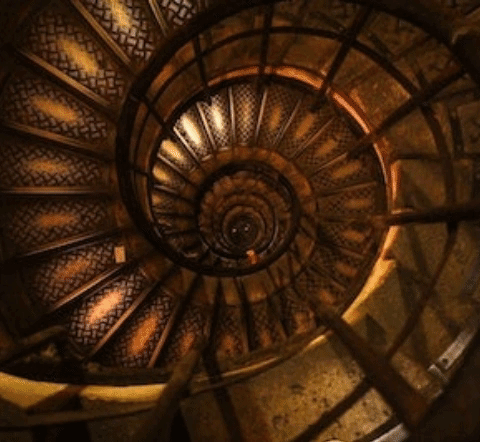
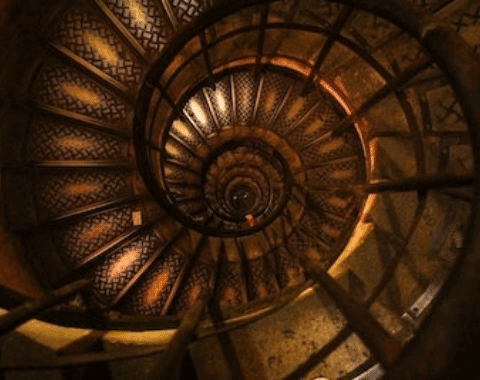
In the Musekal-Memorial Library, the labyrinthine-spiral staircase takes you down into its undergound vault and up into its heavenly realms.
.jpg)
.jpg)
The original painting of the "Tower of Babel" (left) by Bruegel and a contemporary painting, "Library of Babel" (right) by Guy Ben Ari.
.


"I cannot think it unlikely that there is such a total book on some shelf in the universe. I pray to the unknown gods that some man—even a single man, tens of centuries ago—has perused and read this book. If the honor and wisdom and joy of such a reading are not to be my own, then let them be for others. Let heaven exist, though my own place may be in hell. Let me be tortured and battered and annihilated, but let there be one instant, one creature, wherein thy enormous Library may find its justification." –Jorge Luis Borges, The Library of Babel
"Within my darkness I slowly explore The hollow half light with hesitant cane, I who always imagined Paradise To be a sort of library." –Jorge Luis Borges

The Tower of Song “Musekal-Memorial Library”
as Gothic-Labyrinthine Universal Library
.

As the Gypsy Scholar searches and searches on his Romantic quest in the Tower of Song “Musekal-Memorial Library” for such a magical "total book," he also prays that "thy enormous Library may find its justification."

“Every life is a book in the Great Library of Divine Memory, and globes of all the Worlds are preserved here, and all that has been is embroidered forever in the Tapestry of Time, ‘till all creation is rolled up like a scroll and preserved herein, forever, by the Divine Antiquary!”
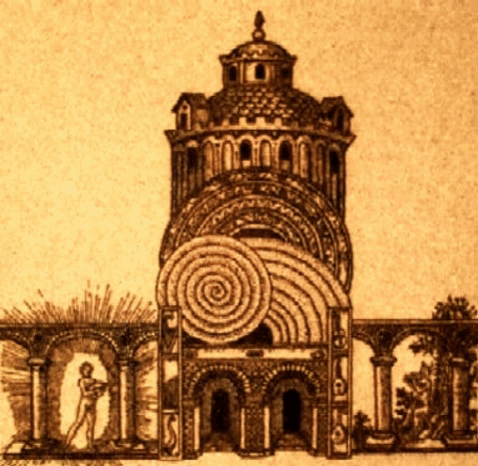

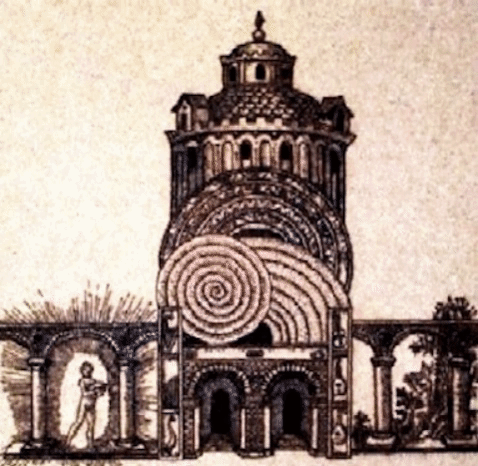



.
And this “library,” an “infinite labyrinth,” is precisely what the Gypsy Scholar means by the Tower of Song “Musekal-Memorial Library,” which is located in that “invisible landscape” of the psychedelicized imaginal mind.
.

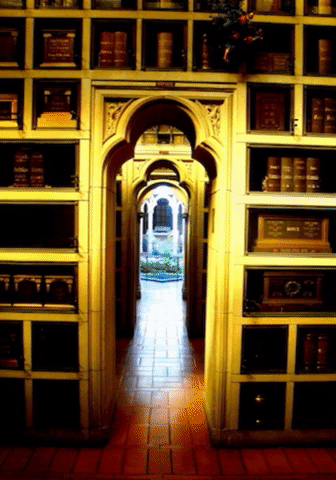
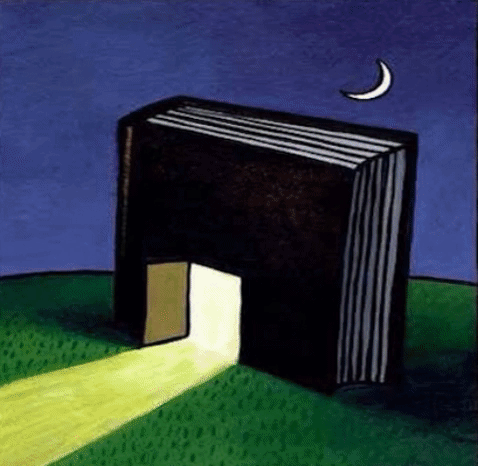
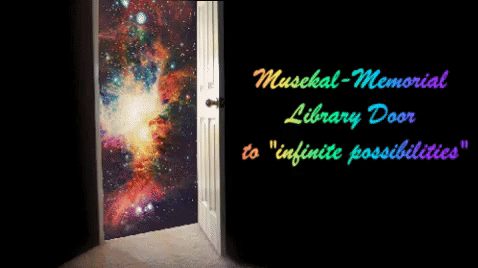
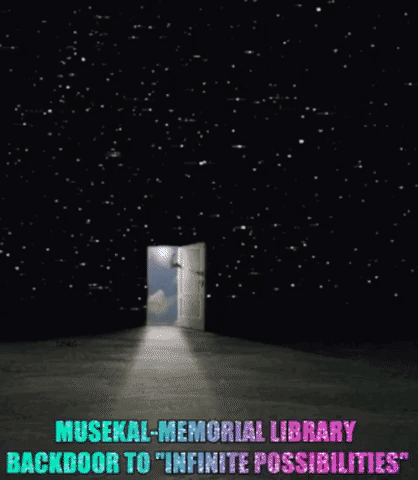

The Musekal-Memorial Library's labyrinthine and
maze-like corridors, haunted by angelic presences.
.
.





There's a secret door in the inner sanctum of the Musekal-Memorial Library that leads to the library's parallel world.

.
In the Musekal-Memorial Library, the psychedelicized brain becomes labyrinthine and hexagonal in its structure, just like the library itself.
In the final analysis, in the Musekal-Memorial Library the mind just doesn't simply assimilate the structure and patterns of the library; it realizes it is the library—the archetypal, "Universal Library."
.

.
.
“There is that romanticized idea of what a bookstore can be, what a library can be, what a shop can be. And to me, they are that. These are places that open doors into other worlds if only you're open to them.” –Ruth Reichl
“I understood right from the start that every set of library doors were the sort of magic portals that lead to other lands.”–Deb Caletti
“A library is a house of hope. It’s a place where we all, whatever our situation, can feed our ideas and develop our dreams.” –Doug Wilhelm









.
"These examples made it possible for a librarian of genius to discover the fundamental law of the Library. . . . When it was proclaimed that the Library contained all books, the first impression was one of extravagant happiness."
–Jorge Luis Borges, ‘The Library of Babel’
The Dream of the Universal or Ideal Library:
“The Library Without Walls”
They are walking among the books accumulated there; they pause, standing, to read a book, or they group around the few tables placed in the hall. The message is clear: a space in the form of a basilica and devoted to reading recuperates a sacred character that ecclesiastical buildings had lost; study is like a voyage among books punctuated by advances and halts, by solitary reading, and by erudite conversation. –R. Chartier, The Order of Books
The dream of a universal library that would bring together all accumulated knowledge and all the books ever written, which can be found throughout the history of Western civilization, became a serious preoccupation of librarian-encyclopedists beginning in the 16th century (and extending into the in the 17th and 18th centuries) with the concept of the Bibliotheque:
“The problem of the impossibility of a universal library was to be overcome with a new concept of a library, the Bibliotheque: an apartment or place destined for putting books; gallery, building full of books. . . . The sum of their titles defined an ideal library freed from the constraints imposed by anyone actual collection and overflowing the limits inherent in anthologies and compilations by the immaterial construction of a sort of library of all libraries in which nothing (or almost nothing) was lacking.” –R. Chartier, The Order of Books
This new usage of the concept of the bibliotheca “detaches the word from its material definition and invests the library without walls . . . with universality.” (R. Chartier)
“The various meanings given to the term for a library thus clearly show one of the major tensions that inhabited the literate of the early modem age and caused them anxiety. A universal library (or at least universal in one order of knowledge) could not be other than fictive, reduced to the dimensions of a catalogue, a nomenclature, or a survey. Conversely, any library that is actually installed in a specific place and that is made up of real works available for consultation and reading, no matter how rich it might be, gives only a truncated image of accumulable knowledge. The irreducible gap between ideally exhaustive inventories and necessarily incomplete collections was experienced with intense frustration. It led to extravagant ventures assembling—in spirit, if not in reality—all possible books, all discoverable titles, all works ever written. ‘When it was proclaimed that the Library contained all books, the first impression was one of extravagant happiness.’” –R. Chartier, The Order of Books
.
.
On the last leg of the guided tour, "Our Dark Lady of the Musekal-Memorial Library," after a look at some special study chambers, takes you out the library backdoor and shows you around the enchanted courtyard.
.

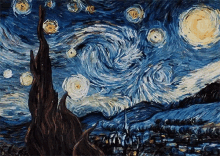
Showed me pictures in the gallery
Showed me novels on the shelf ...
Showed me different shapes and colours...
(Van Morrison, "Torn Down a la Rimbaud"
.



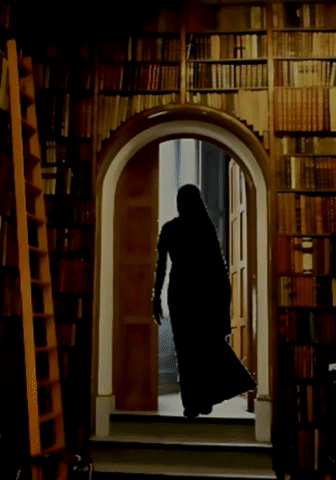

The Musekal-Memorial Library courtyard
.
“The library is my cathedral.” – Barbara Bretton

.
.jpg)
Nature's Library
"The Reader's Path" leading up to the Musekal-Memorial Library courtyard
.

The Nature of the Library & The Library of Nature
“We would fain take that walk never yet taken by us through this actual world, which is perfectly symbolic of the path we love to travel in the interior and ideal world.” —Thoreau
“ Since, among other things, I will be arguing the intimacy of Romanticism and criticism, these metaphors ... of landscape and walking seem appropriate. The Romantics themselves were great walkers, and it is well known that they saw in nature the type of a serenity, a power, and also a terror that they felt unrealized within themselves. Nature as reality and nature as fantasy coexist uneasily in Romantic poetry, as the poet himself is sometimes a sublime, even demonic quester and at other times is simply a walker in this world.” (Jean-Pierre Mileur, The Critical Romance)
.
Mileur points out that “this world” of nature in which the Romantic poet-critic walked is yet at the same time the world inside the library: “It was not until relatively recently that we recognized that at some point for the Romantics the landscape also became a library. In his fascination with inscriptions and epitaphs, for example, Wordsworth expresses an early recognition that if the landscape can be read as a text, then texts can be taken in and traversed like landscapes.”
In other words, Romantic texts are at once landscape and library. This Romantic textual heterocosm becomes, on this webpage, the hyper-textual heterocosm of the “Invisible Landscape,” located in the topos of the Tower of Song’s Musekal-Memorial Library.
.
The Ideal Reader in the Ideal (Natural) Library
The Gypsy Scholar desired to walk away from and go beyond the boundaries of traditional Anglo-American “Protestant scholarship” and its text. This (“down and out of the university”) movement took him back—“way, way back”—to the very first “sacred libraries” of Egypt, where the “House of Books” was presided over by the god Toth (Hermes) and the goddess Seshat. Thus, the Gypsy Scholar spends most of his research time in the Musekal-Memorial Library of the Tower of Song (that type of legendary “Lonely Tower Library”), where he can feel the angelic, or daimonic, presences that haunt the stacks and hear “those funny voices” (of “twenty-seven angels”),
which seem to speak out of the pages (or wings) of the mysterious library’s “out-of-the-way books” (Coleridge).

.
Gypsy Scholar, in an age of high-tech popular culture forms, is still a lover of books, a bibliophile—and could even be described as “bookish.” The Gypsy Scholar has it on good authority that in our digital age the old “book” is not replaced by the electronic media, but, paradoxically, the new media becomes another manifestation of the archetype of The Book. Ergo, what this means in the Tower of Song’s Musekal-Memorial Library (that “more complex space”) the cyberspace text, the hypertext, is stored and stacked in the “memoria;” in other words, in the imagination of the ideal reader.

The Ideal Library, The Book, & The Poetisphere
“The structure of the narrative will, therefore, not be revealed in the linear narrative of this book, but in the hypertext in which all the texts are stacked in the imagination of the reader. In this more complex space, permissible and forbidden knowledge cross in ways that excite the artists but disturb the academic clergy.” –William Irwin Thompson
“A book is more than a verbal structure or series of verbal structures; it is the dialogue it establishes with its reader and the intonation it imposes upon his voice and the changing and durable images it leaves in his memory. A book is not an isolated being: it is a relationship, an axis of innumerable relationships.” – Jorge Luis Borges
“The fact is that poetry is not the books in the library . . . Poetry is the encounter of the reader with the book, the discovery of the book.” – Jorge Luis Borges, ‘Poetry’
When the Ideal Reader, encountering the “hypertexts” within the “more complex space” of the Tower of Song's Ideal Library, s/he discovers a secret door that leads to what some visionaries call the “poetisphere.”
Gaston Bachelard asks, “How can we enter the poetisphere of our time?” and clearly suggests, when he paraphrases Borges' notion that paradise is an immense library, that the poetisphere is in fact a paradisiacal library:
“How can we enter the poetisphere of our time? An era of free imagination has begun. From everywhere, images invade the air, go from one world to another, and call both ears and eyes to enlarged dreams. Poets abound. . . . Whoever lives for poetry must read everything. How often has the light of a new idea sprung from a simple brochure! When one allows himself to be animated by new images, he discovers iridescence in the images of old books. Poetic ages unite in a living memory. The new age awakens the old. The old age comes to live again in the new. Poetry is never as unified as when it diversifies. What benefits new books bring us! I would like a basket full of books telling the youth of images which fall from heaven for me every day. This desire is natural. This prodigy is easy. For, up there, in heaven, isn't paradise an immense library?” – Gaston Bachelard, The Poetics of Reverie

“It's a great joy to see, feel, explore and reveal the 'Poetisphere' ever present and resonant around and inside us.”
– Colin Goedecke (Poet Laureate)
So, to Bachelard's question, “How can we enter the poetisphere of our time?,” the Gypsy Scholar would answer: discover and enter Tower of Song Musekal-Memorial Library.
.


.
.


In Praise of Libraries
“A house that has a library in it has a soul.” – Plato
“I spent many hours ensconced in the local library, reading—nay, devouring—book after book after book. Books were my soul's delight.” – Nikki Grimes
“I discovered me in the library. I went to find me in the library.” – Ray Bradbury
“Without the library, you have no civilization.” – Ray Bradbury
“A library is not a luxury but one of the necessities of life.” – Henry Ward Beecher
“The library is the temple of learning, and learning has liberated more people than all the wars in history.” – Carl T. Rowan
“A library is the delivery room for the birth of ideas, a place where history comes to life.”
– Norman Cousins
“A library is a place vibrating with ideas.” – Nancy Kunhardt Lodge
“Libraries represent the diversity and immensity of human thought, our collective knowledge laid out in rows of revealing inspiration.” – Manuel Lima
“Libraries hold the keys to the universe.” – Kiki Hamilton
“I ransack public libraries, and find them full of sunk treasure.” – Virginia Woolf
“I don’t have to look far to find treasures. I discover them every time I visit a library.”
– Michael Embry
“I remember going to a monastery library when I was very young and being surrounded by ancient books. I fell in love.” – Hans-Ulrich Obrist
“When I enter a library, I feel I’ve come home.” – Barbara Wright
.jpg)
.
.
The Tower of Song “Musekal-Memorial Library”
as Memory Theater






.
Heaven as Artificial Memory
The Memory Theater & The Art of Memory
“... marked with many images and full of little boxes.”
Giulio Camillo was a 16th-century philosopher commissioned by the King of France to create a theater with extraordinary physical attributes. This Venetian “Memory Theater” was a magical space that was supposed to contain the sum of all knowledge. Whoever entered it was to emerge with all the knowledge of the world available to them at immediate recall. Thoughts, it seems, would be fixed in the mind through an association with visual things; thus Erasmus reported that Camillo's theater was “marked with many images and full of little boxes.”
Mnemosyne, said the Greeks, is the Mother of the Muses, and so the ancient Greeks, to whom a trained memory was of vital importance—as it was to everyone before the invention of printing—created an elaborate memory system, based on a technique of impressing “places” and “mages” on the mind. This “art of memory” (ars memoriae) was inherited and recorded by the Romans.
Basically, the “art of memory” is any of a number of loosely associated mnemonic principles and techniques used to organize memory impressions, improve recall, and assist in the combination and “invention” of ideas. The “art of memory,” as practiced in the Renaissance, was a technique for ordering the memory. This was the Renaissance “Memory Theater.” The human memory was conceived as an internal treasure-house or “theater” rather than a mere alphabetical or chronological filing system. The Renaissance art of memory's mnemotechnics used contemporary architecture for its memory places and used contemporary imagery for its images.
From the ancient Greeks and Romans, the “art of memory” passed into the European tradition, to be revived (from the medieval Hermeticists) in occult form during the Renaissance, and integrated with Renaissance Neoplatonism. It was then once more transformed into a Hermetic or occult art, and in this form it continued to hold a central place in the European tradition. Renaissance magical or occult memory systems were practiced by Giulio Camillo, Giordano Bruno, and Robert Fludd. Thus, it has been argued that the stimulus behind the Renaissance occult “art of memory” system was the Hermetic tradition.
Leaving aside for the present the occult aspect of the Renaissance “art of memory,” in order to comprehend the nature of the Memory Theater of yesteryear, we can put it into the context of the concept from Jungian psychology known as the “collective unconscious.” Both are essentially concepts for a storehouse of images. Since the manipulation of images in memory must by necessity involve the psyche as a whole, we can understand that what the ancients called “memoria” (an internal treasure-house or “theater”) is the entire imaginal realm of the psyche (i.e., the imagination or “imaginal soul”). Archetypal psychologist James Hillman writes:
“Whereas an encyclopedic filing system is a method by which concepts are written, available one page at a time; a theater is a place where images are envisioned, available all at once. In the art of memory events belong together in clusters or constellations because they partake of the same archetypal meaning or pattern, and not merely because these events all begin with the letter A or B or happened on the same day or in the same year. The organization of the mind was based on inherent meanings, not on arbitrary nominalistic labels. In this arena of memory all the information in the universe could be stored, so that this art provided a means for having universal knowledge present to anyone mastering the techniques. It was both a retrieval system and a structural model for laying out the groundwork and hierarchies of the imagination on archetypal principles. The ordering rubrics that provided the categories were mainly the planetary Gods and themes from classical myths.”
“The human memory was conceived as an internal treasure-house or theater . . . an imaginal realm of memory . . . memoria . . . an imaginal soul.”
The Memory Theater & The World-Wide Web
Again, we have to understand what Prof. Marshall McLuhan (who predicted the World Wide Web almost 30 years before it was invented and provided a strong conceptual framework for understanding the cultural implications of the technological advances associated with the rise of a worldwide electronic network) said about the electronic media and the evolution from one media technology to another in the history of culture. Thus, concerning the medium of the Book, the point here is that old “book,” the old “library” is not an antiquated thing to be replaced by the electronic media. Instead, it becomes its equivalent in the digital age—the cyberspace internet:
"Cyberspace: A new universe, a parallel universe created and sustained by the world's computers and communication lines. A world in which the global traffic of knowledge, secrets, measurements, indicators, entertainments, and alter-human agency takes on form: sights, sounds, presences never seen on the surface of the earth blossoming in a vast electronic night…. Cyberspace: Its corridors form wherever electricity runs with intelligence. Its chambers bloom wherever data gathers and is stored. Its depths increase with every image or word or number, with every addition, every contribution, of fact or thought. Its horizons recede in every direction; it breathes larger, it complexifies, it embraces and involves. Billowing, glittering, humming, coursing, a Borgesian library, a city; intimate, immense, firm, liquid, recognizable and unrecognizable at once." —Michael Benedikt, Cyberspace: First Steps
“If we can put a man on the moon and sequence the human genome, we should be able to devise something close to a universal digital public library.” —Peter Singer




.
The Memory Theater & The World-Wide Web:
Introducing the Tower of Song Musekal-Memorial Library
The Hermetic system of mnemonics—the Memory Theater and its “art of memory”—, once thought to be a pre-scientific fantasy, now has the possibility to be fully realized in cyberspace with the World-Wide Wed (or Internet). Indeed the Gypsy Scholar would suggest, taking McKenna at his word, that it has the potential to be the new Borgesian “Library Without Walls.”
The point of all this history of the Memory Theater then is to suggest that the ancient dream of a storehouse of all knowledge might just be realized with the World Wide Web (if humanity can overcome its commercial, sensational, and distracting elements that is). However, the Gypsy Scholar has another point to make with all this.
Therefore (since Robert Fludd and his architecture prominently figured in the creation of the Renaissance “Memory Theater”), all this has to do with the overall significance of the Tower of Song’s Musekal-Memorial Library, that website “marked with many images and full of little boxes” in Cyberspace.

This is all well and good. However, the Gypsy Scholar may have a fundamentally different view of what the Internet should be than most people, a view he has taken from Terence McKenna, who clearly saw the World Wide Web's reality in Borgesian terms. Again, it serves as a place in cyberspace were we can show each other our dreams—you can “see what I mean.” Thus, the GS's vision of the World Wide Web is a psychedelicized one; that is, it's a domain of visionary potential. Just like the point of the Memory Theater wasn't (as many then and even now believe) about the mechanics (the mnemotechnics) of the art, so, too, the digital-age Memory Theater, the World Wide Web, isn’t about the hardware and the binary codes. It’s about connection—the interrelatedness to both others and to the ideas and images of the psyche. For someone such as McKenna, the purpose of the World Wide Web was global connectivity (along the lines of what McLuhan meat by “the global village”); i.e., the unification of the human race. But not only that: the unification of humanity as an “ecology of souls” with the biosphere of the planet, the “Gaian Mind.”
Therefore, the GS would hope to see the image of a digitally wired planet (a planetary web or network) eventually give way to an image of another kind of encompassing network of communication—a mycelium network; in other words, a “Wood Wide Web.” (Fungi below ground are made up of tiny threads called mycelium. These travel underground, connecting the roots of different plants in an area, even different species, together, allowing them to communicate and so much more. Some researchers say the trees of the forest and the mushrooms found growing next to them are so interconnected that it is hard for them to see trees as separate organisms any longer—they are in what’s called a “symbiotic relationship.” Thus, here’s the (psychedelic) mushroom analogy the GS would make for his vision of the World/Wood Wide Web. Not, then, a materialist-mechanistic model of a network grid encompassing the planet but rather a spiritual model, a network of transcendental light. This would mean that the World Wide Web eventually becomes the higher intelligence of the Gaian Mind. The GS therefore invites you to “see what I mean.”






Seeing What the The World Wide Web Means:
The Aestheticization of Computer Data
The Gyspy Scholar sees signs “first steps” towards the kind of holistic vision of the World Wide Web he is relaying here. This has to do with aestheticizing information. This has been done in two wats: (1) taking computer data (essentially the two-symbol system of binary code) and transforming it into art and (2) mapping the paths through which information flows from interconnected computer networks, from router to router, all across the world and turning it into art.
(1) A July 2015 article entitled “What the Internet Actually Looks Like: Visualizing Digital Information,” is about something called “The Opte Project,” an Internet mapping initiative started in 2003 by computer scientist and artist Barrett Lyon, who has released its latest visualization of the ever-growing Internet. The Internet at its core is a massive global system of interconnected computer networks. What's mapped in Lyon's images are the paths through which information flows from router to router all across the world. Computers from different regions of the world are mapped out by color, allowing viewers to see how regions like Latin America have experienced explosive growth in Internet connectivity. Lyon explains: “What you’re looking at is not a real world. You’re looking at a representation of this different dimension, so to speak. The Internet is really big, very connected and extremely complex. It’s this whole world you can’t see. That’s the fun part of visualizing it.” (The Opte Project has been on display in the Museum of Modern Art in New York City and the Museum of Science in Boston.)
(2) A December 2013 article entitled,“The Way Information Can Be Visualized: Visualizing the Secret Beauty of the World Wide Web” is about Dr Martyn Dade Robertson, a lecturer in architecture from Newcastle University, who creates the stunning artworks, known as Data Portraits. “From a distance these stunning images look likes stars exploding, fireworks or simply striking patterns - but what you're actually looking at are the hidden dimensions of the world wide web.” His research looks at the links between architectural design, online spaces and the way information can be visualised. He has developed a way of mapping sites and turning drab data into a beautiful artwork. Each image is unique and captures a website at a particular point in time as the information they contain is constantly changing. The artworks show the navigational links that a web user sees, but also links to code, images, videos and the layer of external links which, together, make up the complete structure of a web site. Dr Robertson explains: “I've been interested in the ideas behind the data portraits for some years now, looking at the way the online world is developing and how you could show that dense information in a new way in my research. I wanted to take the web, which is something that we see every day and really just take for granted, and show a different side to it. I started playing around with the data and found a way to capture the information and make it into art. What is really fascinating about this is that it really is a snapshot of a website at particular point in time and if I did the same process again just a day later, the data portrait would be different as the information available would have changed.” Dr Martyn has created artworks from Google, NASA and Apple websites.
Of course, the the Gypsy Scholar found it significant that Dr Robertson “looks at the links between architectural design, online spaces and the way information can be visualised.” It seemed so familiar! Here is a scholar whose research consisted of “playing around” with online data in order to see websites “in a new way ” from the usual drabness, showing “a different side to it.” This artistic beautification of utilitarian website data definitely struck a chord with the Gypsy Scholar! Ah, yes, all too familiar: “scholarship as playing with knowledge.”
Truth be told, the GS couldn't help but wonder how his Tower of Song website would look if Dr Robertson took a Data Portrait of it!
Images from Barrett Lyon's Opte Project
.
.jpg)
.jpg)


Images from Dr Robertson's Data Portraits




.
.

This website page is a Cyberspace Imaginarium & Museum
The Gypsy Scholar conceived of it it as a cyberspace treasure-house, a museum, of images. As such, it can be understood in terms of the Jungian concept of the “Collective Unconscious or Objective Psyche,” which is described as a psychic dimension treasure-house of images:
“It is as if we did not know, or else continually forgot, that everything of which we are conscious is an image, and that image is psyche.” — C. G. Jung
“In so far as the psyche has a non-spatial aspect, there may be a psychic "outside the body," a region so utterly different from "my" psychic space that one has to get outside oneself or make use of some auxiliary technique in order to get there.” — C. G. Jung
“. . . we are imagining the psyche's basic structure to be an inscape of personified images. . . . We can describe the psyche as a polycentric realm of nonverbal, nonspatial images. . . . Since psyche is primarily image and image always psyche, this faith manifests itself in the belief in images . . . . Psychological faith begins in the love of images, and flows mainly through the shapes of persons in reveries, fantasies, reflections, and imaginations.” — James Hillman
“The human memory was conceived as an internal treasure-house or theater . . . an imaginal realm of memory . . . memoria . . . an imaginal soul.” — James Hillman
Therefore, as an image of the Universal Library in cyberspace, this webpage (representing the Tower of Song website itself) is an externalized Imaginal dimension, or Imaginarium, of the Anima Mundi.
.

Alchemical Macro-Microcosm

Alchemical Anima Mundi (World Soul)






















